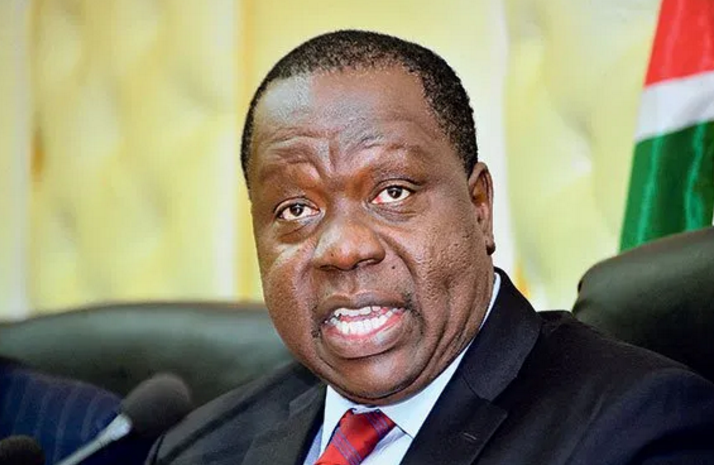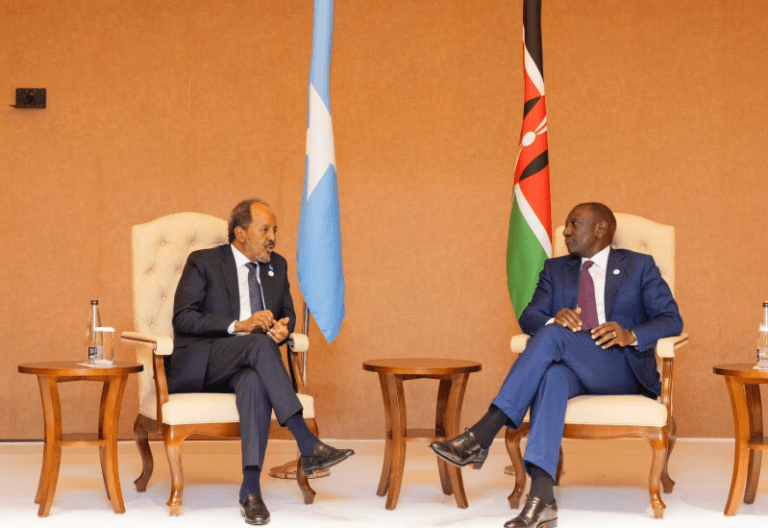Regional states urged to focus on removing supply chain barriers

Great Lake Region countries have been asked to prioritise removal of historic supply chain bottlenecks worsened by the Coronavirus (Covid-19) pandemic.
President Uhuru Kenya said that the region is facing ever greater challenges with the escalation in commodities prices and severe constraints on supply chain.
In a speech delivered by Interior Cabinet Secretary Fred Matiang’i (pictured), the Head of State said the road ahead of the region is hard and fraught with uncertainty.
“However, our individual and collective histories show that we are up to the task; no matter how seemingly insurmountable those challenges may be,” he said.The speech was delivered during the launch of the 12th Plenary Assembly of the Forum of Parliaments of the International Conference on the Great Lakes Region (FP-ICGLR).
Enter the bloc
The 12th plenary Assembly comes barely a week after Kenya played a key role in East African Community’s (EAC) expansive drive that saw DR Congo enter the bloc.
DR Congo’s presence comes with numerous opportunities including access to alternative trade route on the Atlantic side, mineral reserves, and vast market access. The realisation of this, however, banks on the removal or reduction of existing trade barriers, underscoring the significance of revising existing internal legislation by member states.
Senate speaker Kenneth Lusaka said Parliaments have a central role to play with respect to budgeting and appropriations, as well as enacting legislation that facilitate their realisation.
Cross-border peace
ICGLR was incepted in 2008 to promote cross-border peace and regional development among the African Great Lakes Region.
Africa has been looking for innovative alternatives in the face of limited resources, including leveraging on programmes such as African Continental Free Trade Agreement (AfCFTA) to consolidate its market base.
Southern African Development Community (SADC), Common Market for Eastern and Southern Africa (Comesa), and EAC have ratified the proposed Tripartite Free Trade Areas (TFTA) to enhance the larger single market and boost intra-regional trade.
The three blocs represent 53 percent of the African Union membership constituting over $1.4 trillion GDP, representing about 60 percent of African continental GDP.












